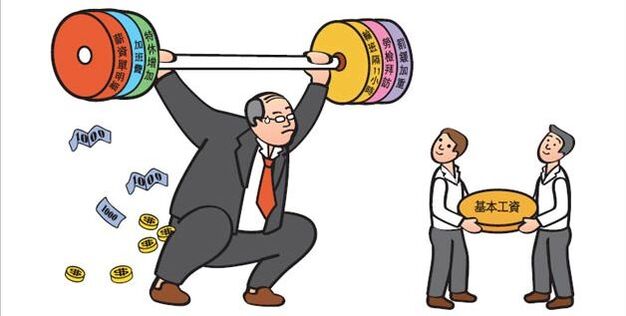If you are coming from the US or another British common law country overseas, you should understand that Taiwan handles labor disputes and associated issues in its own way. While lawsuits may be par for the course elsewhere, settling labor issues via litigation is a rare occurrence in Taiwan. (This will explain why labor lawyers are scarce on the ground in Taiwan.) Rather, the common practice is for the Ministry of Labor to arbitrate on labor issues between an employee and employer in Taiwan. This is primarily because labor laws in Taiwan are very well codified: if there’s a practice to be followed, you can find it written down in black and white; and if there isn’t, well, you won’t. To illustrate the Taiwanese way of thinking, say that, hypothetically speaking, a prospective employee has received an offer letter from a company which is then rescinded, or the start date is postponed. What recourses are there? We spoke to the WDA recently to see if it could intercede in a situation such as the one above. You may find WDA’s answer surprising. WDA’s role is to safeguard labor’s interests once an official employer-employee relation commences. In this particular situation, WDA explained that the aforementioned situation was not under its purview because a formal employer-employee relationship (which has clear definition under Taiwan law) had not even existed. In short, you can save yourself a lot of headaches by reading up to know just where you stand and understanding Taiwanese “legal logic.” The good news is that the Ministry of Labor has very clear guidelines on issues such as handling employee separation, and many of its online resources are in English (such as the Ministry’s Workforce Development Agency at www.wda.gov.tw/en ). You can also reach out to them by phone or email using the contact information you will find there. Furthermore, the Ministry is able to arbitrate certain issues when they arise. Say, for example, an employee refuses to sign a termination agreement and thus creates some undocumented points of contention. This is when mediation comes into play. Once involved in arbitration, the Ministry of Labor will push for a settlement between the two parties. All in all, you should be covered if you handle matters in accordance with the Ministry’s guidelines. Finally, we have seen an uptick in “remote” work, especially as this island offers a safe haven amid the COVID-19 pandemic. Digital nomads, remote workers, and Silicon Valley “refugees” are becoming more common, and Taiwan is welcoming this 21st century workforce through initiatives like its Gold Card Visa, entrepreneur visa, investor visas, and so on. However, how you are engaged as a remote worker may have different labor implications for you. For example, if you are doing remote work for an overseas company that has no Taiwan-based entity, you may find yourself without the labor law protections offered local employees (since the Ministry of Labor may not have jurisdiction in this case). On the other hand, if you work for an overseas firm through a staffing company that operates in Taiwan, you may be afforded some minimum labor law protections but not the full benefits enjoyed by direct employees of the company you are working for. (This is a common practice among multinational firms.) Finally, a direct hire relationship with a foreign company’s entity in Taiwan would offer the best protection and safeguards, from both a legal and a benefits perspective. In all instances, there may be implications for your tax filing, national health insurance, and labor pension obligations. However, what many remote workers overlook is the issues that may arise, e.g. notice period, severance, etc., when they are made redundant. Without the proper safeguards, the employee may find themselves in “no man’s land”, neither able to file a grievance under Taiwanese law or under the jurisdiction of their employer. To sum up, Taiwan’s labor law is 1) very codified 2) there’s no wiggle room and 3) if you follow the rules set forth & adopt a Taiwan logic, then it’s pretty straight-forward. (The challenge is learning the “Taiwanese logic”.).
3 Comments
4/7/2022 02:43:52 pm
Once involved in arbitration, the Ministry of Labor will push for a settlement between the two parties. Thank you for making this such an awesome post!
Reply
4/12/2022 01:26:16 pm
This is when mediation comes into play. Once involved in arbitration, the Ministry of Labor will push for a settlement between the two parties. Thank you for the beautiful post!
Reply
Leave a Reply. |
Archives
September 2023
Categories
All
|


 RSS Feed
RSS Feed